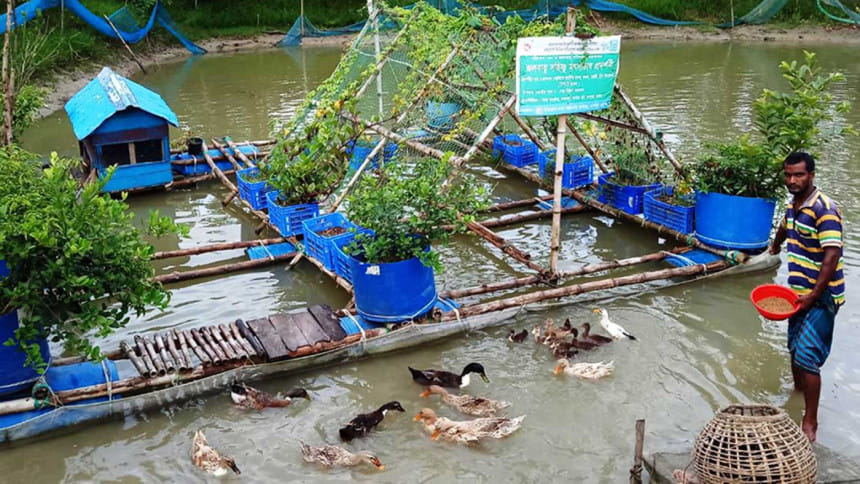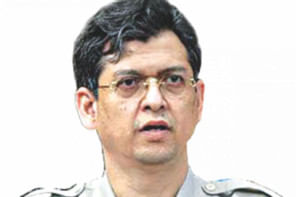Locally led adaptation: We can lead the world

The Global Center on Adaptation (GCA) was set up with its headquarters in the Netherlands a couple of years ago, and has already developed into a major platform focusing on supporting countries to adapt to the adverse impacts of climate change. It has already set up regional centres in China and Africa, and is about to launch the regional centre for South Asia in Dhaka, Bangladesh, in conjunction with the government.
I have the privilege of being a senior adviser to the GCA, and am pleased that they have decided that their Dhaka office will become their global hub on Locally Led Adaptation (LLA) to climate change, in recognition of Bangladesh's long experience in promoting LLA by both the government and the NGOs.
Let's look at how Bangladesh, in a whole-of-society manner, can truly become a global leader on LLA, and share that knowledge with other developing countries—especially the ones most vulnerable to the climate impacts.
The first lesson that Bangladesh can share with others is how to develop a national adaptation plan with a whole-of-society approach, which is essential for any plan to be effectively implemented. Bangladesh has a long history of planning for adaptation to climate change and incorporating those plans into national development programmes. The latest versions of this will be the Bangladesh National Adaptation Plan (NAP) and the Mujib Climate Prosperity Plan (MCPP), both of which will emphasise investment in LLA as a way to achieve transformational adaptation over the next decade.
The second major lesson is making top-down national plans while also investing in enabling bottom-up inputs from the vulnerable communities so that the plans are implemented without failure. So, there needs to be a paradigm shift: instead of looking at the vulnerable communities as mere targets or beneficiaries of support from the top, we need to take them as the agents of change themselves who know best what needs to be done, and those who wish to support them must listen to them first. These ideas have been included in the eight principles of LLA, which has now been adopted by many governments, donor agencies and others. Now, these principles need to be put into practice. A major element here is capacity-building of young girls and boys, and putting women at the centre of LLA.
The third lesson is including knowledge partners in the exercise and planning for the long term—not just for short-term projects— to make LLA effective. This is essential because climate change is a science-based issue, in which the adaptation practitioners need to be continually provided with scientific information on the climate risks in each geographic location they work at, and at the same time, the experiential learning of the practitioners themselves must be recorded as they implement adaptation plans. Thus, the knowledge of climate impacts is an essential input to any adaptation plan, and the knowledge of adaptation will be its output. Hence engaging a knowledge partner such as a university or a research institute is essential, rather than simply hiring consultants who will leave once a project is over.
The final lesson is to design adaptation investment plans for long-term implementation, rather than focusing on short-term projects only. This requires a longer-term programmatic approach from the financiers. However, even if funding is provided to projects with limited duration, emphasis must be placed on what the projects will leave behind once they are over, rather than on what is done during project implementation. Thus, investment in adaptation to climate change should be seen as investment in long-term capacity-building.
If all the sectors in Bangladesh can join forces to make our own country more resilient and prosperous in spite of climate change, we can also share that knowledge with other countries through peer-to-peer exchange visits, as well as the annual Gobeshona Global Conference on Locally Led Adaptation and Resilience, organised by the International Centre for Climate Change and Development (ICCCAD). Bangladesh can indeed become the world leader in LLA if everyone concerned work together, effectively and with a whole-of-society approach.
Saleemul Huq is director of the International Centre for Climate Change and Development at the Independent University Bangladesh.

 For all latest news, follow The Daily Star's Google News channel.
For all latest news, follow The Daily Star's Google News channel. 



Comments